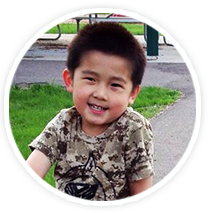Services are free!
Regardless of:
Social skills, such as learning how to play with others, playing pretend and working together, begin to develop at a young age. Coaching and interaction from caring adults help children learn these skills, and it takes time and practice.
Social and emotional skills help children understand others and develop relationships, and there are a lot of ways you can help. Teaching actions and words to use with others can help your child better communicate their needs, wants and emotions. Establishing daily routines helps children feel safe and secure as they try new things.
Children begin to learn important social and emotional skills at a young age. Here are ideas to help preschoolers from 3 to 5 years develop these skills.
For more information on how to encourage and support a child’s development, visit the Social and Emotional Milestones page.
Source: Fun Activities Families Can Do with Their Children: Ideas for Families with Babies, Toddlers and Preschoolers, Spring 2020, Minnesota Department of Education (PDF download)

If you have concerns about a child's development and think a child might need extra help to learn and grow, don't hesitate to refer a child.
The family will be contacted by the local school district to arrange for a screening or evaluation to determine if their child is eligible for Infant and Toddler Intervention or Preschool Special Education services in Minnesota.
Services are free!
Regardless of:
